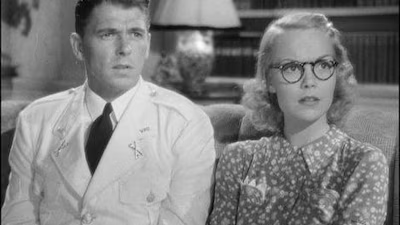George Abbott
About
Biography
Filmography
Family & Companions
Bibliography
Biography
At 96, he became a newlywed - albeit for the third time - and directed a Broadway show; at 102, he was writing a libretto for an off-Broadway production of "Frankenstein." In a career that spanned nine decades, few things, least of all age, slowed the producer, writer, director and sometime actor George Abbott until his death at the age of 107. Throughout his life, he had been known as "Mr. Broadway" due to his influence on the stage there, but he also wrote and directed a number of films as well. From his first hit on the stage, "Broadway" (1926) through a 1994 revival of the classic "Damn Yankees," Abbott's contributions indelibly shaped the American theater landscape. Hardworking, dashing and formal - most people eschewed his first name, famously calling him "Mr. Abbott" instead - his work won him multiple awards starting with his first for writing the screenplay for "All Quiet on the Western Front" in 1930 and culminating with Kennedy Center Honors in 1982.
Abbott was born in Forestville, New York in 1887; his family moved to Cheyenne, Wyoming when he was 11, but returned to New York a few years later. Attending the University of Rochester, Abbott caught the theater bug and after graduation, he enrolled in a playwriting course at Harvard. He broke into theater as an actor and "play doctor," much like a Hollywood script doctor of today, and once he began earning a steady income, he married his longtime girlfriend Edna Levis. He directed one silent film, "The Imposter," in 1918, but it was "Broadway," co-written with Philip Dunning, that marked his first big stage success. In the same year, the first of many of his plays was adapted for film, "Love 'em and Leave 'em" (1926). Although the theater and Broadway in particular always remained his first love, Abbot enjoyed several decades of success in Hollywood as well.
His first major achievement in the film world came with his adaptation of "All Quiet on the Western Front" for which he received an Academy Award for Best Achievement in Writing. The same year, his wife died, leaving Abbott to raise their daughter Judith alone. His professional life, however, was thriving, and he directed eight films between 1929 and 1931 starring such luminaries as Tallulah Bankhead and Claudette Colbert. During the 1930s, Abbott's plays also launched the careers of a number of future stars including Eddie Albert, Jose Ferrer, Desi Arnaz and Gene Kelly. Abbot directed his first stage musical in 1935, Rodgers and Hammerstein's "Jumbo," and went on to direct many more musicals during the next two decades, often with some of his own adaptations and changes to the material. The actor, dancer and choreographer Bob Fosse worked with him on the stage production of the Tony Award-winning "The Pajama Game" (1955) which became a film written, directed and produced by Abbott two years later. The film "Damn Yankees" (1958), which he also wrote, directed and produced, was also based on his Tony Award-winning play of the same name. In 1946, Abbot married his second wife, actress Mary Sinclair, who was 35 years his junior. The marriage was short-lived, however, and ended in divorce in 1951.
Throughout the 1950s and 1960s Abbott received numerous nominations and awards for his work on stage and screen including Tony Awards for the productions "Fiorello!" (1959) and "A Funny Thing Happened on the Way to the Forum" (1962). He also wrote an autobiography, Mister Abbott (1963). As he entered his ninth decade, Abbott began to slow down professionally, writing, directing, and producing fewer works, but remained energetic, staying current with the theater scene. In 1982, he received Kennedy Center Honors, and a year later married his longtime companion Joy Valderrama. He also directed and co-produced a revival of "On Your Toes" (1983) which was so successful he repeated it in London a year later. In his 100th year, he directed a revival of the hit that had launched his career more than 60 years earlier, "Broadway," and in 1989 he directed an off-Broadway musical version of "Frankenstein" reimagined as a love story. One year later, he received the prestigious National Medal of Arts from the National Endowment for the Arts. Abbott lived long enough to see "Damn Yankees" revived on Broadway when he was 106 and worked nearly up until the day of his death writing a revision of "The Pajama Game." Although the theater bearing his name was torn down in 1970, the man many people considered to be nearly synonymous with Broadway for several decades was honored by having a street near Times Square, George Abbott Way, named for him.
Filmography
Director (Feature Film)
Cast (Feature Film)
Writer (Feature Film)
Producer (Feature Film)
Production Companies (Feature Film)
Cast (Special)
Writer (Special)
Make-Up (Special)
Special Thanks (Special)
Misc. Crew (Special)
Life Events
1926
First hit play, "Broadway"
1929
Directed first talkie, "Why Bring That Up?"
1930
Wrote first screenplay, "All Quiet on the Western Front"
1935
Directed first musical, "Jumbo"
1958
Co-directed film version of "Damn Yankees" with Stanley Donen
1983
Oldest director of show on Broadway with revival of "On Your Toes"
1994
Attended Broadway revival of "Damn Yankees"
Videos
Movie Clip












Family
Companions












